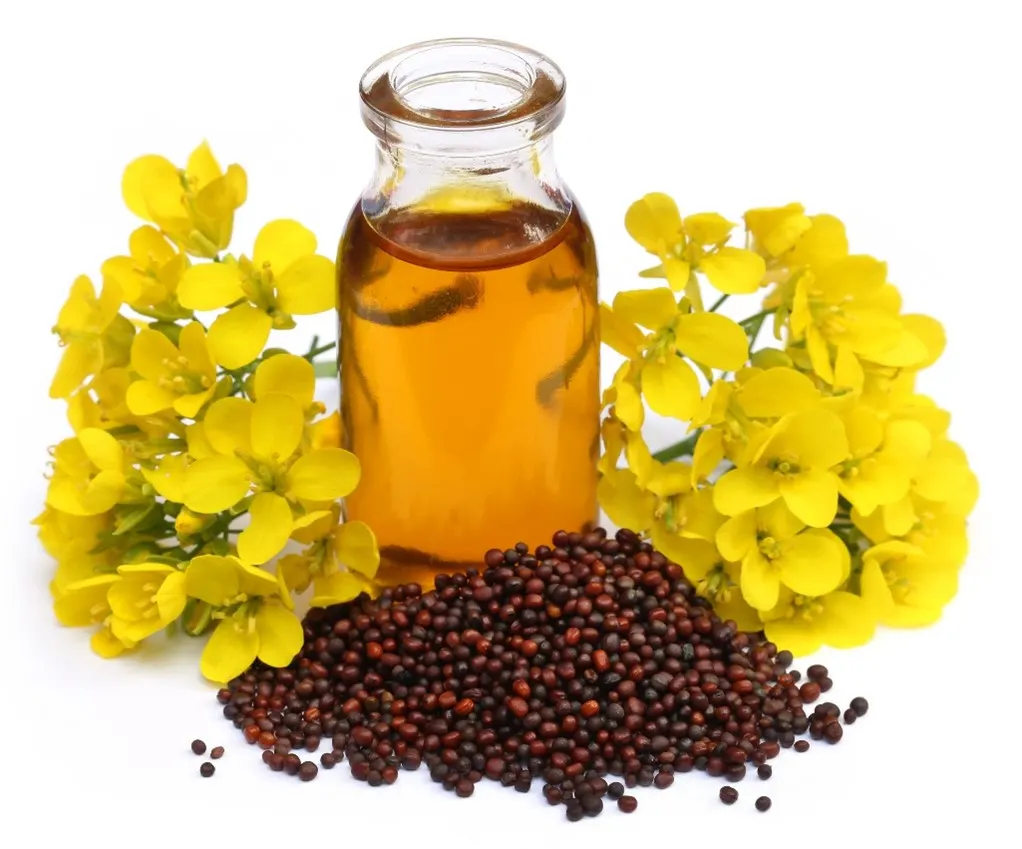IS MUSTARD GOOD FOR DANDRUFF?
Mustard oil joins the various kitchen ingredients that are proclaimed as answers for your hair trouble. But is mustard oil good for dandruff?

Mustard oil is found all over the Indian subcontinent, with the yellow fields of mustard or sarso finding its way into popular culture. It’s used extensively in cooking, lighting lamps, and as a therapeutic massage oil for pain relief. It has a particular taste and smell which can be quite pungent.
But mustard oil is also commonly applied to your hair. In fact, certain countries don’t allow you to consume it, but are fine with topical application. It’s rich in fatty acids that make it a great moisturiser, being used extensively for dry hair, dry scalp, frizzy hair, and split ends. And now using mustard oil for dandruff is also becoming popular.
Benefits of mustard oil for hair
Benefits of mustard oil for hair
Let’s understand the benefits of mustard oil for your head, before we see its effect on dandruff:
- It contains anti-inflammatory properties and can give relief from pain.
- It is rich in omega 3 fatty acids that help in curbing inflammation and retaining moisture.
- The primary value of mustard oil is hydrating your scalp and hair.
- It is said to be anti-fungal and anti-bacterial in nature, that helps in reducing any infection.
- It contains antioxidant vitamins E and B, which help reduce oxidative stress and possibly reduce greying of hair.
- Massaging the oil into your scalp, along with the vitamins, can boost blood circulation. This strengthens your hair root and brings nutrients to your scalp.
- It can assist in hair growth and hair strengthening.
When it comes to dandruff, all the above properties help with your problem. Dandruff is usually caused by a naturally occurring fungus, known as Malassezia Globosa. It breaks down the oil build-up on your scalp into by-products that you might be reactive towards. Almost half the people in this world are sensitive to this breakdown, and you end up with scalp itching, redness and oily flakes of dead skin cells.
Using mustard oil as a dandruff treatment works to reduce the effect of the fungus and prevent any build-up of sebum or oil. In addition, the anti-inflammatory properties can soothe your itching and reduce the chance of further infection. This lends credibility to the use of mustard oil for dandruff
How to use mustard oil for dandruff?
There are various methods that people have used to calm down their dandruff. There is no particular route to follow, as you should see what works for you. For all the choices listed below, you can either apply it for a few minutes or keep it overnight. Always remember to shampoo thoroughly after and not leave behind any mustard oil in your hair.
- Apply a few drops directly to your scalp and massage it in. You can also heat the mixture before application.
- Mix it with coconut oil, almond oil, or jojoba oil before applying. You can again heat the mixture and apply.
- Create a hair mask of aloe vera with mustard oil and apply it to your head. This can calm down your itching and clear excess build-up. Leave it for about half hour and then shampoo your hair.
- Create a paste with mustard oil and curd. You can also add grounded fenugreek seeds to this. Apply it to your hair and leave it for about 45 minutes, before shampooing.
- Some people combine mustard oil with lemon juice. This can boost the shine of your hair and clear the excess build-up that causes dandruff.
Be careful
Although mustard oil is used extensively on the hair, there is no direct scientific proof of its benefits against dandruff. Most of the studies are concerned with the consumption of mustard oil, not the application. In addition, there are a few concerns you should be aware of:
- It can act as an irritant and cause a skin rash. This is commonly seen, where the application leads to burning and stinging sensations.
- It can clog your pores and lead to inflammation. This can increase the chances of infections as well.
- You might have an allergic reaction to mustard oil, and it is important to do a patch test before applying it on your head.
- It is directly associated with an increase in oil build-up on your scalp. This attracts germs and dirt, which can aggravate your dandruff condition instead of solving it.
- Keep it out of your eyes, as it can sting quite a bit.
- Your hair can become excessively greasy, preventing the flow of natural oils. This can impact the oil build-up on your scalp.
Mustard oil is not a fool-proof solution on how to reduce dandruff. It is a home remedy for dandruff that has more anecdotal evidence and might not work for everyone. You could try it out and see if it works. But if you’re in a rush, you could also try out products like the Head and Shoulders Neem, which uses elements of nature to get rid of dandruff causing germs. If you’re looking for hydration, you can try the Head and Shoulders 2 in 1 Smooth and Silky that restores dry hair and leaves you with dandruff free hair. You have all of these options at your disposal, all you need to do is see what works for you.



